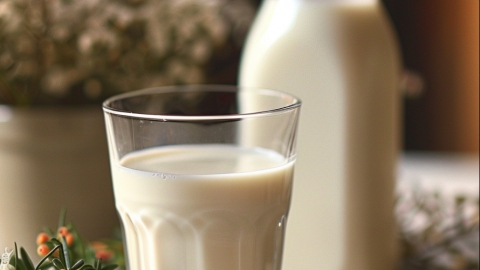Can bananas and milk be eaten together?
In general, bananas and milk can be consumed together. The detailed explanation is as follows:

Bananas are rich in potassium, magnesium, dietary fiber, carbohydrates, beta-carotene, vitamin C, vitamin B6, pectin, and other nutrients. These components help maintain electrolyte balance in the body, promote intestinal motility, improve digestive function, enhance immunity, and protect the nervous system. Milk, on the other hand, contains abundant protein, calcium, phosphorus, vitamin A, vitamin D, and other essential nutrients, which are crucial for bone health, vision maintenance, and normal nervous system function.
When consumed together, bananas and milk can complement each other's nutritional benefits. The dietary fiber and vitamins in bananas can promote intestinal motility and improve digestion, while the protein and calcium in milk help replenish essential nutrients and support bone health. Additionally, the natural sugars in bananas provide energy, which, together with lactose in milk, offers a sustained energy supply.
Although both bananas and milk are nutritious, excessive consumption may lead to physical discomfort. Bananas, in particular, have a relatively high sugar content and should not be consumed in excess to avoid blood sugar fluctuations. Milk also contains a significant amount of fat, and excessive intake may lead to fat accumulation in the body.










